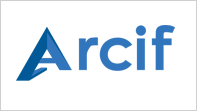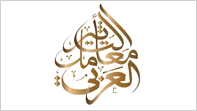A Meta-Analysis Of Request And Apology Speech Acts In L2 Language Learning Of Arab Postgraduate Students At Malaysian Universities
DOI:
https://doi.org/10.51984/johs.v22i4.2830Keywords:
Speech acts, Linguistic pragmatics, Request and Apology, EFL learners, quantitative and qualitativeAbstract
The speech Acts of Arab students have also been an interesting domain of research due to the translation of phrases by the students to the English language directly from the Arabic language. Currently, various researches have been conducted in this domain. The speech acts of requests are complaint, complement, compliment, greeting, invitation, refusal, request etc. The most commonly used among these requests and apologies which when compared to the rest of them holds a number of repetitions. This study undertakes a meta-analysis to examine the utilization of request and apology speech acts with respect to native Arab-speaking post-graduate students who communicate with their instructors in the English language. Previous studies were selected with respect to the apology and request speech acts. The studies reveal that the structural formation of the EFL Learners of the English language is like those of the native Arab speakers. It is vital for the EFL learners of Arab countries to understand the difference between standard cultural norms and practices that must be used in English-speaking social settings to avoid a pragmatic miscommunication or in other words failure of the same and hence emphasize linguistic pragmatics for the learners to get accustomed to a cultural environment of English-speaking ones which eventually envisions a communication with clarity and unambiguity.
Downloads
Downloads
Published
Issue
Section
Categories
License
Journal of Humanities Policy on Intellectual Property and Plagiarism
1. Commitment to Intellectual Property and Ethics
The Journal of Humanities (JOHS) is fully committed to respecting intellectual property rights and aims to protect the originality and authentic work of authors who submit their manuscripts for publication. The journal takes a firm stand against articles that contain any form of plagiarism and emphasizes the need for all researchers to adhere to the highest ethical standards in scientific research.
2. Anti-Plagiarism Policy
The journal considers plagiarism a serious violation of academic ethics. Therefore, authors must ensure that their work is original and not plagiarized, and that any use of external sources is properly cited and documented according to correct academic standards.
-
Actions Taken: In the event that any plagiarism or academic theft is discovered in a submitted article, the editorial board will contact the author to request a formal explanation within a maximum period of two weeks from the date of notification.
-
Investigation and Decision: After receiving the explanation, the article will be referred to the journal's specialized committees, which will investigate the matter and take the necessary measures, which may include the permanent rejection of the article and the imposition of disciplinary actions.
3. Publication License and Author Rights
The journal adopts the Creative Commons license type Attribution-NonCommercial-NoDerivs 4.0 International (CC BY-NC-ND 4.0), which allows for the following:
-
Attribution: Users are entitled to cite the content published in the journal and use it in their work, provided that the original source and author are clearly credited.
-
Non-Commercial: The published content may not be used for any commercial purpose.
-
NoDerivs: It is not permitted to make any modifications, distortions, or to build derivative works from the published content.
Under this license, authors are required to complete an exclusive license agreement for the journal. Authors retain the rights to their research data and may reuse and share their work for scientific purposes with proper citation.







